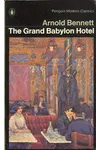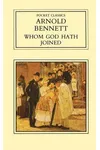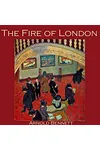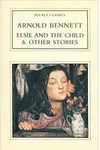Picture a British storyteller who turned the gritty streets of the Potteries into literary gold—meet Arnold Bennett! Born in 1867, this prolific author crafted over seventy works, including the beloved The Old Wives' Tale, blending humor and heart to capture provincial English life. His realist fiction, sharp wit, and keen eye for human nature made him a literary star of the early 20th century.
Bennett’s journey from a clerk’s desk to literary fame is as compelling as his novels. His ability to weave everyday struggles into timeless stories still resonates, inviting readers to explore the charm and complexity of his world.
The Making of Arnold Bennett
Enoch Arnold Bennett was born in Hanley, one of the six towns of Staffordshire’s Potteries, a region known for its pottery industry. Growing up in a modest Methodist household, he absorbed the rhythms of working-class life that would later define his work. Initially trained as a solicitor’s clerk, Bennett’s passion for writing led him to journalism in London, where he honed his craft. His early novels, inspired by the industrial landscape and social dynamics of his youth, marked the start of a remarkable career.
Arnold Bennett’s Unforgettable Stories
Bennett’s masterpiece, The Old Wives' Tale (1908), follows the divergent lives of two sisters, Constance and Sophia Baines, with a vivid realism that earned comparisons to Balzac. Its portrayal of time’s passage and human resilience remains timeless. Clayhanger (1910), part of a trilogy, delves into the ambitions and struggles of Edwin Clayhanger in the Potteries, showcasing Bennett’s knack for rich character studies.
His style blended naturalism with a conversational tone, often laced with gentle humor. Works like Anna of the Five Towns (1902) explore the tensions between duty and desire, while Riceyman Steps (1923) offers a darker look at obsession and thrift. Bennett’s versatility extended to short stories, plays, and essays, cementing his reputation as a literary all-rounder.
His focus on ordinary lives—shopkeepers, clerks, and factory workers—set him apart in an era dominated by aristocratic tales. By grounding his stories in the Potteries’ smoky landscapes, Bennett gave voice to a region and its people, making the mundane profound.
Why Arnold Bennett Matters
Bennett’s influence lies in his ability to humanize the industrial heart of England, offering a counterpoint to London-centric literature. His empathetic portrayals of women and working-class characters were ahead of their time, influencing later realist writers. Though his popularity waned after his death in 1931, his works continue to captivate readers for their emotional depth and social insight.
His legacy endures in literary circles and among fans of classic fiction, with The Old Wives' Tale often cited as a pinnacle of realist storytelling. Bennett’s stories remind us that even the quietest lives hold extraordinary tales.
About Arnold Bennett
- Born: May 27, 1867, in Hanley, Staffordshire, England
- Key Works: The Old Wives' Tale, Clayhanger, Anna of the Five Towns, Riceyman Steps
- Died: March 27, 1931, in London
- Notable: Known for his vivid depictions of the Potteries and realist fiction
Snag The Old Wives' Tale and dive into Arnold Bennett’s heartfelt world of realist fiction!
























































































